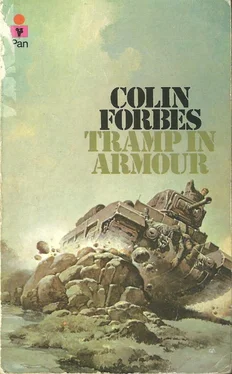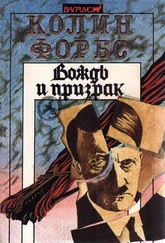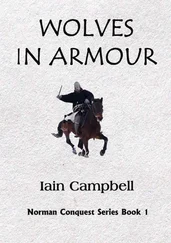They lay full length in a ditch some distance from the house but at a point where Barnes could still see it. The ditch was dry and disused and thick with tall weeds. A German would have to be on top of them before there was the remotest chance of’ their being spotted, and the ditch was a long way from anywhere. A long way from the road and a long way from the outhouse where the Renault was now hidden. Penn, Jacques, and Reynolds were sprawled out along the ditch behind him and the machine-pistol rested in front of his chest. Barnes had deliberately placed Jacques between the two men because he was fairly sure that they would have to lie there for two or three hours and he had no knowledge of the lad’s endurance. When he had taken Reynolds aside his instructions had been quite precise.
‘If he gets panicky and there’s no other way out – knock him on the head with your revolver butt.’
Through a clump of weeds Barnes could see the farmhouse and a section of the road. The view looked incredibly peaceful, a pastoral scene with not a soul in sight. His eye fell on the haystack, an innocent piece of furniture one might expect to find anywhere out in the country. For the second time in twelve hours Bert was all on his own. He stiffened. From the road beyond the house he heard the high-pitched engine sound of a motor-cycle: a patrol must have overtaken the leading tank and roared on ahead. A cycle with a side-car came into view, turned, and drove out of sight into the farmyard. Penn kept his own voice down as he spoke, although it wasn’t necessary.
‘Have they arrived?’
‘Just a motor-bike and side-car. They’ve gone into the yard.’
‘Let’s hope Mandel can handle them.’
‘He’ll handle them all right just so long as they don’t start investigating that haystack.’
‘Something’s smoking – look, just beyond the roof.’ Penn rested his chin on the edge of the ditch. ‘They can’t have set the place on fire already.’
‘Got it! The artful old devil set fire to those spare bales Etienne dumped in the yard. That’s his diversion to keep them occupied.’
For the first time Barnes wondered what rank Mandel had attained during the First World War.
‘Any sign of the two Jerries?’ inquired Penn.
‘No, they must still be at the house… keep your head down! Tell the others.’
Along the road from behind the house the first German heavy tank appeared, its commander erect in the turret. The machine seemed to glide along the highway and across the field they could hear the low grumble of its revolving tracks. He estimated the vehicle’s speed at fifteen miles an hour and the gun barrel was elevated at an angle of about ten degrees. Another tank moved into view, then another and another. They were certainly in a hurry to get somewhere and he was surprised that they were not spaced farther apart. The column’s commander was either foolhardy or else he had very good reason to know that they risked no danger of air attack.
Grimly he watched the enemy tanks and then thought of the Mandels again.
What on earth was happening at the farm? There had been no sign of the Mandels and the motor-cycle patrol was still on the premises. Gradually, the smoke from the fire died down until only a thin wisp rose above the rooftop. By the side of the : machine-pistol lay Barnes’ field-glasses but he was reluctant to use them except in an emergency – the sun could so easily reflect off the lenses and if one of those commanders in the turrets spotted it the fat would be in the fire. He settled himself down to a long wait. Providing all went well at the farm there wasn’t a great deal of risk to fear: it was largely a matter of patience, of waiting for the enemy to go away. This comfortable thought had just passed through his mind when he heard the plane.
Instantly he was reminded of the machine which had spied out the ground for the Panzers crossing the country south of Fontaine. He would always remember that place as Fontaine. His body tensed, his nerves twanged as he realized the implications, and he could have kicked himself for his complacency. The element of comparative safety had now been turned into one of maximum danger. He could tell that the plane was flying very low, and from the way its engine sound faded, and then grew louder he guessed that it was travelling in a circle. It was the one hazard which he should have foreseen, the one which had completely escaped him. Turning on his side he spoke rapidly over his shoulder.
‘It’s a spotter plane, probably flying very low. From now on no one moves a whisker. Pass it on.’
‘I’m the only one with a whisker to move,’ said Penn.
From observation on land they were completely concealed but aerial observation was quite a different matter. There were four of them stretched but close together and the machine sounded to be only a few hundred feet up. They should still escape detection so long as they remained motionless, but in that still empty countryside only a small movement at the wrong moment could easily locate them. Pressing his body into the ditch, Barnes slowly turned his head to one side until he could see a narrow oblong of pure blue sky. The plane was very close now, almost on top of them from the sound, then it flashed into view. It was barely two hundred feet up, so low that he could see the outline of the pilot’s helmet, a helmet which was tilted downwards. Then it vanished. Barnes wet his lips and then stiffened again. The plane was turning to come back again. Surely they couldn’t have been spotted so quickly? Unless someone had moved. Jacques flashed into his mind and he stifled a groan. If he had moved Reynolds could hardly have warned the lad in time, the damage would have been done. Yes, it was definitely turning back, coming closer. What on earth could have attracted the pilot’s attention? Suddenly he went ice-cold as the reason for the pilot’s return flashed through his brain. He was coming back to examine the haystack.
With an awful clarity Barnes saw their fatal mistake. He had personally checked the appearance of the stack from the road which had seemed the obvious danger point. But he had forgotten the air! In his mind he relived the final stages of the camouflage operation. The roof of the stack had looked bumpy so Etienne had used the power-grab shovel to flatten the top. Supposing some of the bales had sunk into the hollow, perhaps falling down into a space between the tank and the hay walls? It could easily have happened and this meant that from the air Bert was now exposed to view. Penn’s finger tapped him on the shoulder.
‘Anything wrong? I saw your hand grip the pistol.’
‘No,’ said Barnes firmly, ‘but keep absolutely still. That plane’s coming back.’
Even though he couldn’t see it yet he could hear it quite clearly now. The machine was describing another circle, but this time it was a smaller circle, a circle whose centre could well be the farmhouse – or the haystack. Very slowly, inch by inch, he raised his head above ditch level, taking care not to disturb the weeds. The Mandels, all three of them, were out standing by the roadside as a self-propelled gun rolled past. There was no sign of the motor-cycle patrol which must have driven off while his head was buried in the ditch. He studied the Mandels, trying to tell something from the way they stood. Then between the weeds the plane darted into view, flying straight towards him across the road. He kept perfectly still, resisting the temptation to duck. As it went over, the Mandels looked up and then dutifully turned their gaze back to the road as another heavy tank rolled past. The commander’s head was turned towards them. Had he made some remark? The spotter plane swooped even lower and roared over their heads. What had caught his attention?
Читать дальше








![Невилл Форбс - История Балкан [Болгария, Сербия, Греция, Румыния, Турция от становления государства до Первой мировой войны] [litres]](/books/390301/nevill-forbs-istoriya-balkan-bolgariya-serbiya-gre-thumb.webp)


